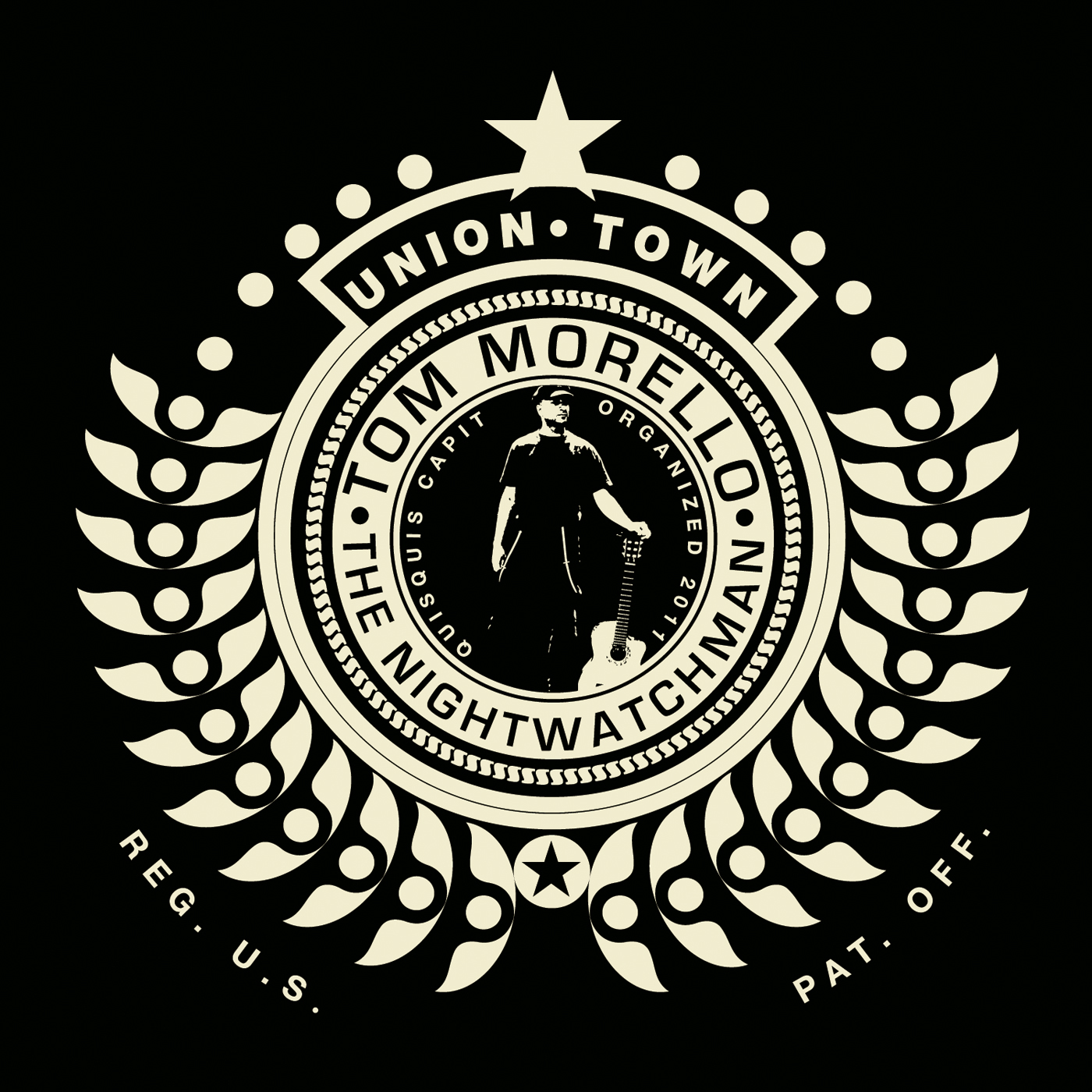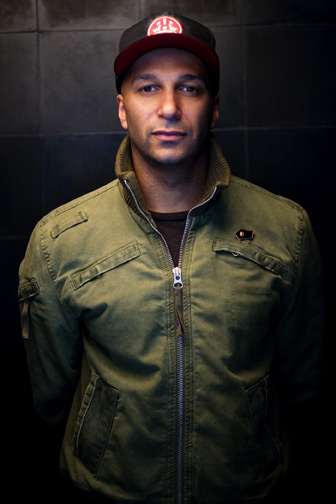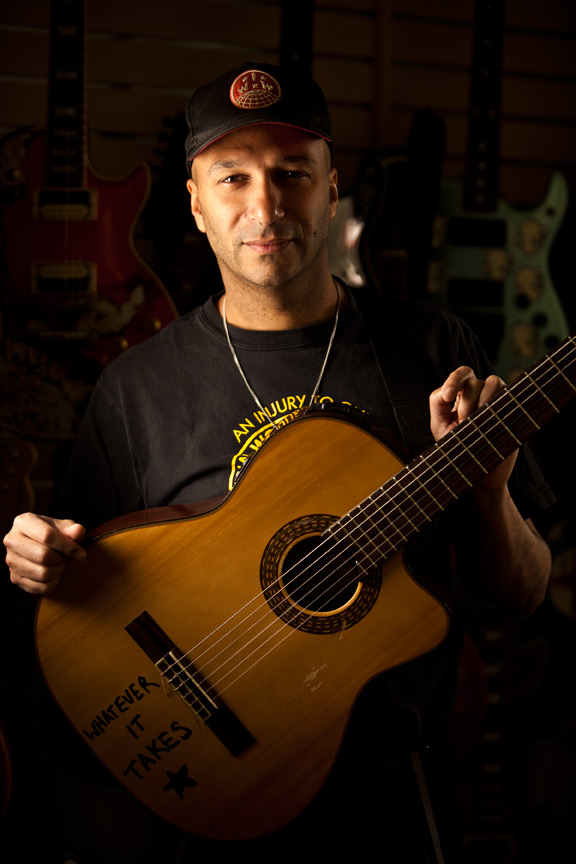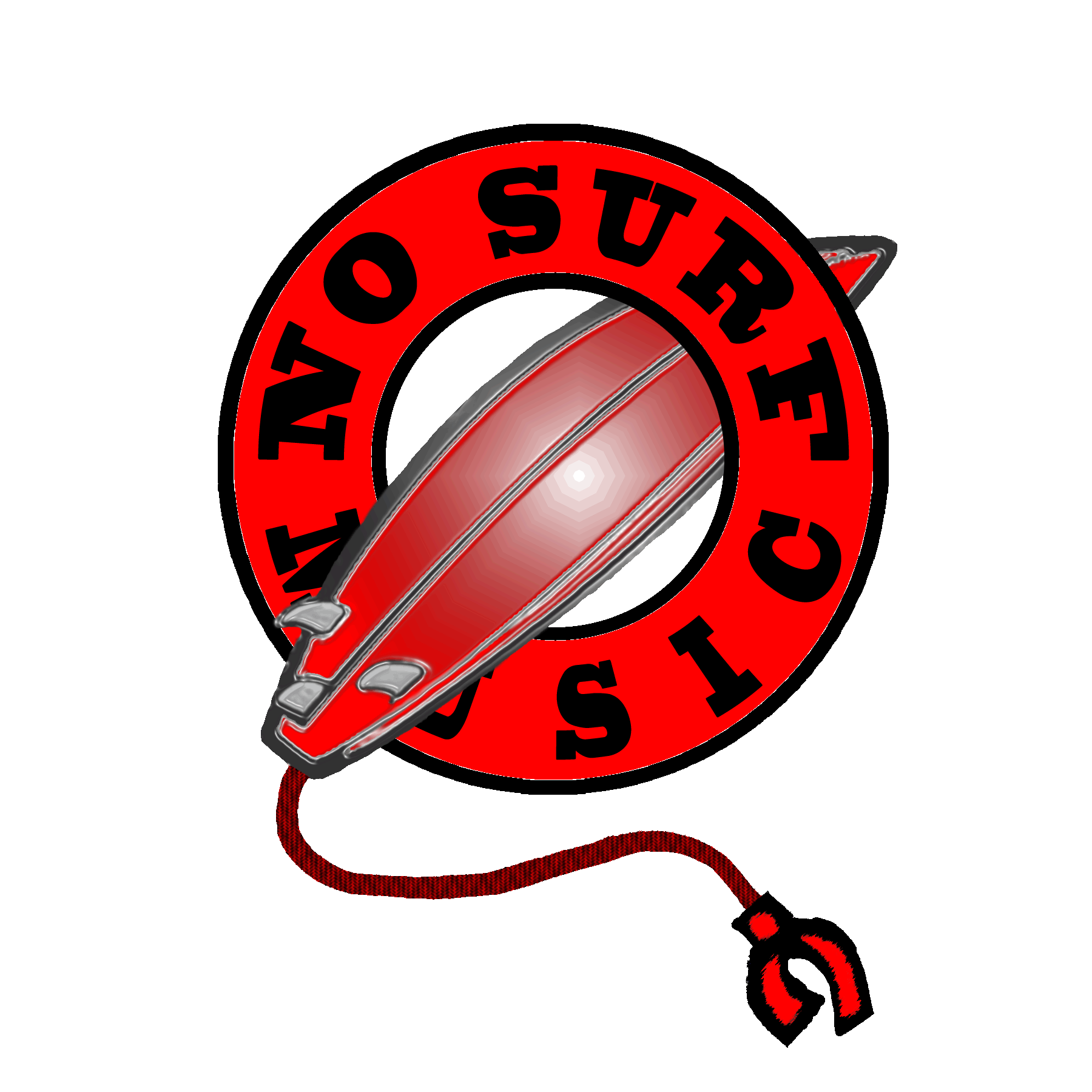
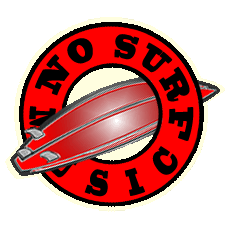
The Lowdown:
July 20, 2011
Tom Morello, The Nightwatchman: Union Town
by Jason D. 'Diesel' Hamad
Tom Morello: The Nightwatchman, demonstrating the proper casual battle attire for 21st century class warfare. Photo by Sean Ricigliano.
It’s hard to find good radical music anymore. Music that unabashedly stands up for the people, that rails against the oppressive powers of the day, that declares that the individual, by banding together with his brothers and sisters, can achieve anything. Yeah, it’s hard to find that kind of stuff anymore.
It’s not hard to find in our past, though. Joe Hill, Woody Guthrie, Pete Seeger, Phil Ochs and many others have all held the mantle as the people’s lyrical champion at one time or another, but with the exception of Britain’s anti-folk master Billy Bragg and Americana legend Steve Earle, there just aren’t too many out there with that kind of spirit anymore.
One clear exception from the recent past (and, now that they're reunited, hopefully for the future) was Rage Against the Machine. With a combination of rap vocals and metal music, they had a sound unlike anyone else, but what was truly important was their message, uncompromisingly anti-establishment, radical, and even revolutionary. Many progressives called them hypocritical for signing on with Epic, claiming the group had sold out and become a part of the machine that they supposedly raged against. The truth is that those same critics would never have heard of Rage Against the Machine had they tried to eek out an existence on their own. The group had a choice before them: shout against the wind or co-opt the would-be corporate masters and seize the megaphone for their own purposes. Anyone who could survive on a major label and yet produce a song that contained the lyric “Fuck you! I won’t do what ya tell me!” repeated ad infinitum must have been doing something right, and Rage managed to walk the line of standing up for what they believed in even while engaged in a symbiotic relationship with the moneyed devil.
Rage Against the Machine was largely driven by their frontman, lyricist and vocalist Zack de la Rocha, but the other members weren't just apolitical players. That has most recently been proven by Tom Morello, who after decades as the guitar player in Rage (and then in the supergroup mismatched clusterfuck that was Audioslave) has broken out on his own, inventing the persona of the Nightwatchman so that he can write and perform his own charged political music. With a new album World Wide Rebel Songs due August 30, Morello has already shown himself to be every bit the political writer as de la Rocha and has displayed a musical range far beyond what his metal-based background might suggest.
There’s no doubt the Nightwatchman has been busy. Even as he gets set to release this new LP, the physical version of his EP Union Town has just dropped (electronic versions have been available since May). It is a work borne out of struggle, specifically Morello’s experience protesting against the anti-labor laws recently enacted in Wisconsin. Morello took part in the massive demonstrations against the proposal to strip public employees of their collective bargaining rights and organized an acoustic Nightwatchman concert to rally the protesters. This experience inspired him to write the song “Union Town” as soon as he returned home and got out of the cold. The day after that, he decided to "record an album of unapologetically pro-labor, pro-working class, pro-union songs” with the song as its centerpiece. The album, consisting of three Morello originals and five traditionals, was recorded in just four days and all proceeds are going to support union struggles.
Leading off the album, “Union Town” states unequivocally that not only is the labor movement alive and well, but that as long as solidarity remains, workers are stronger than ever:
Today the policeman’s a union man,
Brother firefighter’s my friend,
And the kids locked in the Capitol
Are fightin’ till the end.
And we’re not gonna break tonight
And we’re not gonna bend.
Some say the union’s down
But I asked around
And everybody said:
This is a union town, a union town,
All down the line.
And if they come to strip our rights away
We’ll give ‘em hell every time.
The song is lively, opening with a screaming electric guitar. The verses are grounded by the fast strumming of an acoustic guitar and Morello’s vocals, which recall a spirited version of the talking blues. He is joined on the chorus by bass and an enthusiastic crowd of backup singers. The song portrays a blithe version of union struggles considering the obvious deterioration of workers rights supported by corporations and their crony politicians, but not necessarily an unlikely one if the resolve reflected in the lyrics are taken to heart:
For every action, a reaction,
Equal and opposite.
That’s why, my friend, the blood tastes good
Every time I’m hit.
I got a will to win and a Cheshire grin.
The Nightwatchman is near.
And you can’t get it where you’re at
But you can sure get it here.”
Based on the tune of “John Brown’s Body” and “The Battle Hymn of the Republic,” the song “Solidarity Forever” has always had a particularly martial tone. Written by Ralph Chaplin in 1915, the Wobbly anthem now stands as the preeminent union anthem, perhaps second only to the “The Internationale.” In a country where wealth is increasingly concentrated in the hands of an ever-shrinking few and the working class is more and more expected to bear the burdens, its words are just as applicable now as they ever were:
It is we who ploughed the prairies,
Built the cities where they trade,
Dug the mines and built the workshops,
Endless miles of railroad laid.
Now we stand outcast and starving
‘Midst the wonders we have made.
Even more prescient in the wake of the recent Wall Street scandals are the lines:
They have taken untold millions
That they never toiled to earn,
But without our brain and muscle
Not a single wheel can turn.
We can break their haughty power,
Gain our freedom when we learn
That the union makes us strong.
With lively strummed guitar, piano accents and a multi-voice chorus that seems straight out of a protest, Morello’s version amply recreates the rally-born buoyancy for which this song is famous. It’s not a dance tune, but it forces the feet to move in a march straight to the halls of power. Anyone who can listen to it and not immediately want to jump from their seat and do something is either unconscious or without a soul.
Perhaps the greatest of all union songs, “Which Side Are You On?” was written in a minor key, which gives it a characteristically spooky sound. But in Morello’s hands it turns even darker. The Nightwatchman’s deep voice ambles emotionally through the verses and is joined periodically by a chorus chanting “Which side are you on, boys? Which side are you on?” in a manner that, as intended, forces the listener to make an active choice. Starting with an acoustic guitar base, the sound is gradually amped up by the addition of layers including piano and the chilling howl of an electric guitar. By the time the peak is reached at the end, the guitar is fired to full effect as the chorus is repeated over and over with a shouted flair. It is undeniably the liveliest rendition of the song I can recall, and easily one of the most emphatic, even while it maintains all of its sincerity. It is destined to become noted as one of the principal versions of the piece.
One characteristic that marks “Which Side Are You On?” as unique was that it was written by a woman. Although women played a huge roll in the early union movement, this history has often been obscured. Whether as organizers like Mother Jones, workers like the Lowell Mill Girls, or members of the ladies’ auxiliaries supporting their husbands on the line, the union movement could never have succeeded without women’s support. The writer, Florence Reece, was the wife of a United Mine Workers organizer during the Harlan County Wars. One night after her house was ransacked and her family terrorized by deputies in the employ of the mining company, Reece sat down and composed a poem demonstrating her resolve and painting the conflict between workers and bosses in stark relief with lines like:
Across this great old nation
Tell me what you gonna do
When there’s one law for the rulers
And one law for the ruled?
She set the words to the Baptist hymn “Lay the Lily Low” and began singing it to fortify the workers’ conviction in their cause.
“A Wall Against the Wind” is another Morello original. It begins as a memorial for all those who have “perished along the freedom’s road / At the barricade or in the jail cell,” but like any good memorial it transforms itself into a call to action. It marks the first of May as not only a day of remembrance but a day for action, calling for defiance with the chanting chorus:
Morello with his weapon of choice: an acoustic guitar bearing a very Guthriesque slogan. Photo by Sean Ricigliano.
And in the storm we’ll bend,
Like the willow give,
But in the storm we will stand
A wall against the wind.
With the piano forming the backdrop, it is highlighted again by fiery electric guitar and Morello’s expressive vocals.
A jazzy rendition of the classic, Morello’s take on “16 Tons” seems to owe as much to Tom Waits as to the song’s writer Merle Travis. The Nightwatchman’s deep voice resonates over the swinging bass, snapped fingers, brushed cymbals and dancing piano keys as he relates the hardships of life as a miner. The most famous version of this song was recorded by Tennessee Ernie Ford, and while most people easily recognize it as one of the great workingman’s songs, often lost are the revolutionary undertones of the piece:
You load sixteen tons, what do you get?
Another day older and deeper in debt.
Saint Peter don’t you call me ‘cause I can’t go.
I owe my soul to the company store.
This chorus tells of the horribly unfair practice of paying workers in script only redeemable at the company store, which charged outrageous prices due to its monopoly. They “generously” offered credit to bridge the gap, which only ensured that the workers could never quit because they were too far in debt to ever make it up.
But at the same time, the worker warns:
I was born one mornin’; it was drizzlin’ rain.
Fightin’ and trouble are my middle name.
I was raised in the canebrake by an ol’ mama lion.
Ain’t no boss man alive make me walk the line.
The implication is clear: he won’t stand being tread upon forever.
Most people think of Woody Guthrie’s most well known composition, “This Land is Your Land,” as a patriotic song. On some levels that’s true; Woody loved America, its people and its natural wonders. But he also saw the many flaws in the world around him, and he wasn’t afraid to write about them. In fact, the song was originally titled “God Blessed America” and was a direct response to the Irving Berlin song we all know, a statement that we already have our blessings and we don’t need divine intervention to make us great, we just need justice. “This Land is Your Land” was in many ways an angry song, anger against the dislocation and depravation Woody’s people were enduring through no fault of their own, anger against the bankers and industrialists who were profiting while millions suffered, anger that a country that was supposed to be of, by and for the people didn’t seem to be any such thing anymore.
Listen to the song. Any version will do. Don’t hear any of that? That’s because the radical verses are almost always cut from the song and only the patriotic-sounding ones kept. These verses include attacks on greed and personal property rights like:
As I was walking I saw a sign there,
And that sign said no trespassing,
But on the other side it didn’t say nothin’.
That side was made for you and me.
They include indictments of the government-corporate alliance that had failed people so badly, as in:
In the squares of the city, in the shadow of the steeple,
Near the relief office I see my people
And some are grumblin’ and all are wonderin’
If this land’s still made for you and me.
And most of all, they include a clarion call of defiance and never-ending opposition to that which is unjust, as in the lines:
Nobody living can ever stop me
As I go walking that freedom highway.
Nobody living can make me turn back now.
This land was made for you and me.
Not surprisingly, The Nightwatchman chooses to sing only the radical verses, and hooray for him. His version of “This Land is Your Land” would make Mr. Guthrie proud. It starts simply, with an acoustic guitar, much as Woody might have done it. Morello’s voice comes in and sings the first verse slowly and sincerely. It’s at this point that the music springs to life. On the first rendition of the chorus a whole group joins the singing while drums and piano kick up to fill in the sound. As the song nears the final verse there’s a pause for a blistering guitar solo that, though very un-Guthriesque, adds tremendously to the rocking feel that has by now developed. After that the song tones down again as Morello delivers the last verse, and then thunders back for the finale. It’s an absolutely great, high-energy version of Woody’s greatest composition and captures its original intent with fire and gusto.
“I Dreamed I Saw Joe Hill Last Night” comes from a poem written by Alfred Hayes and tells the story of one of labor’s most revered martyrs, singer and organizer Joe Hill. It is written in the form of a dreamed conversation between the narrator and Joe and was set to music by Earl Robinson. During a strike near Salt Lake City, Utah in 1914, Hill was accused of murder. He refused to produce an alibi (some say to protect a married woman with whom he had a relationship), and although there was no direct evidence of his guilt he was convicted and executed. But in the dream, and in the hearts of millions, he lived on:
“The copper bosses killed you, Joe.
They shot you Joe,” says I.
“Takes more than guns to kill a man,”
Says Joe, “I did not die.”
“Joe Hill ain’t dead,” he says to me,
“Joe Hill ain’t never died.
Where working men are out on strike
Joe Hill is at their side.”
Many believe this poem to be the basis for one of the most famous speeches in literary history, Tom Joad’s closing words in The Grapes of Wrath.
Morello’s version is done in a manner that makes the story seem less like a dream and more like an actual ghostly visitation. After an initial blast from the harmonica, the song relaxes into a deep-voiced tale backed up by quiet strums from the guitar. It is spooky, engaging, and filled with emotion, an almost perfect version of the song.
The Nightwatchman performs "Union Song" live in Madison, Wisconsin.
The last track is Morello original “Union Song,” recorded live at the protests in Madison, Wisconsin. It is raucous and lively, just as any good protest song should be. It is an explosive, fiery end to the album, complete with rowdy workers cheering him on:
Hit ‘em where it hurts,
And bite the hand that feeds.
You might get one to three
Or probation and a fine,
But I know where I’m gonna be.
I’m gonna be right on that front line!
It is unapologetically pro-labor, just like the great solidarity songs of old, and contains a fighting spirit so strong I’m surprised the entire crowd didn’t charge straight past the stage and overrun the Capitol.
Union Town is a stunning, powerful album, executed with both devout reverence for the original compositions and a modern-day flare. Musically, it is perfectly executed, and it’s hard to believe it was produced in such a short time. But what stands out most is the fiery determination evident in every note and the sincere conviction of every word. These are fighting songs for a class war as old as time. There is no doubt that Union Town will go down as one of the great labor albums of all time, along with such classics as The Almanac Singers’ Talkin’ Union and Pete Seeger’s American Industrial Songs. Morello has produced a gorgeous, meaningful classic that should not be missed by anyone with the least hint of a social conscience.
| mp3 | cd |
|---|---|

